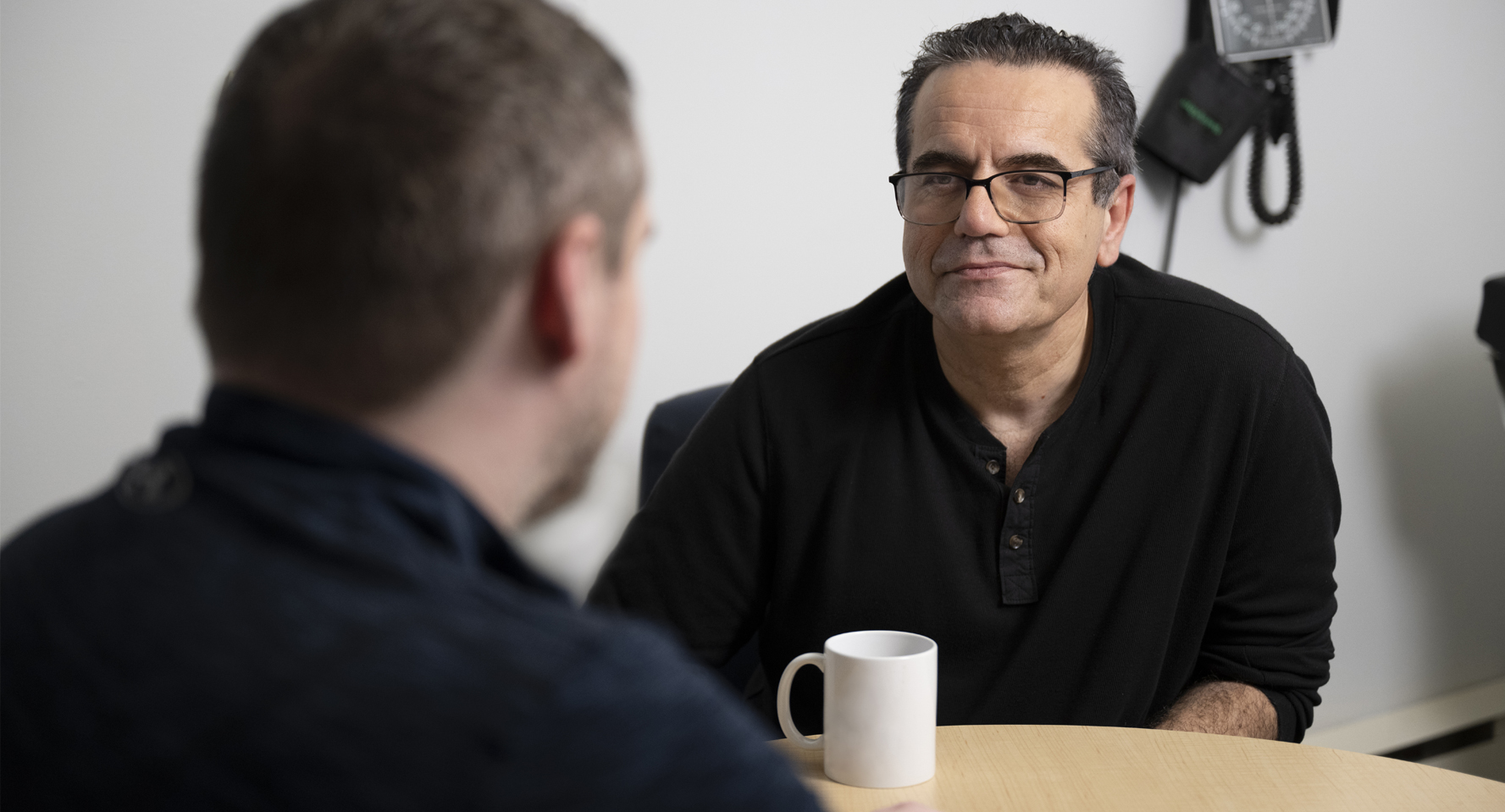"Patients need a safe place to open up, and PAAL is that place. It’s a home for my patients."
Halifax, N.S.
"Patients need a safe place to open up, and PAAL is that place. It’s a home for my patients."
As a family physician specializing in chronic pain and addiction medicine, Dr. Reza Mehrpooya has devoted his career to helping people who are struggling with pain and substance use disorder.
It’s a mission that stems from his own experience. “I’ve lived with chronic pain my whole life and that was an eye-opener for me to understanding how important it is to manage the pain in people,” he said. “People with pain look like normal people, but they have a lot of scars mentally, emotionally and physically that no one sees. It’s a good feeling when you can help others.”
He provides care at 11 clinics in the Halifax area, including the Opioid Recovery Clinic, Coastal Ketamine Clinic, the pain management unit at the QEII Health Sciences Centre, and Pain and Addictions Albro Lake (PAAL), a community-based clinic in north-end Dartmouth.
Pain and Addictions Albro Lake serves the local community, in particular people from equity-deserving groups and those living with the effects of poverty, racism, food insecurity, addiction and mental illness. The clinic helps people who are dealing chronic pain, substance use disorder and those transitioning from inpatient to outpatient care.
“My patients often don’t have food, don’t have housing, money or family support,” said Dr. Mehrpooya, who notes that some patients even travel from New Brunswick and Prince Edward Island to receive care at the clinic.
“We see a lot of homeless families now – families with kids who are living in a truck and they hide it from everyone because they are scared they will lose their kids. It’s very hard. Patients need a safe place to open up, and PAAL is that place. It’s a home for my patients.”
In addition to his work in pain and addiction medicine, Dr. Mehrpooya runs a family practice in Hubbards where he provides care to almost 2,000 patients. Working in primary care is demanding, but he knows he is helping to keep health care available to people who need it.
“As a family physician, if I can provide any care my patient needs, I can reduce the pressure on the ER and everywhere else, so they can give better service to those who don’t have a family physician.”
He even makes house calls to provide access for his patients who struggle to come into his office. “My average patient is over age 65. I enjoy house calls because it’s my job and I’m part of their family.”
It’s those deep connections with his patients that he values. “As an immigrant, I don’t have extended family in Nova Scotia – it’s just my two kids and my wife. When I go to my family practice, I feel I have a family because I’m connected to my patients.”
Dr. Mehrpooya studied medicine in Iran, and then completed programs in counselling and psychotherapy for family physicians at the University of Toronto. He went on to complete additional training in occupational medicine and ultrasound-guided injections for managing pain. He has been working in Nova Scotia for 11 years.
He enjoys teaching medical learners who are new to pain and addictions medicine. Pain and Addictions Albro Lake is a teaching clinic that has a collaborative team of physiotherapists, counsellors, pain psychiatrists, pain interventionists and nurses. Dr. Mehrpooya is one of four physicians on the team.
“We see a lot of young med students who are trying to find their way in the world as a physician,” he said. “Patients talk to me about the darkness they’re dealing with that they don’t feel comfortable or safe talking to a family member about. We need to show younger physicians this part of medicine.”
He also makes time to mentor students through the Atlantic Mentorship Network – Pain and Addiction, an interdisciplinary team that provides training in pain and addiction medicine to health-care providers and learners of all stripes.
“The best way to learn is to teach others and that’s what we do [at PAAL] with our patients. Patients are also mentoring each other and talking with each other.”
Working a hectic schedule and helping people in very tough situations does take a toll on him personally. “Some of the things I witness can be very painful and can stick with you,” said Dr. Mehrpooya. “I have a psychologist. You take your car to be tuned up every six months, and you need to do the same for yourself.”
Prioritizing time with his family also helps him feel grounded. “Every day, I prepare breakfast for my younger daughter. By doing that she feels love her whole day…I work hard and my wife works hard. She is a director of human resources at the IWK. We make sure we have one hour of quality time with just the two us every week.”
For Dr. Mehrpooya, having a supportive team in his corner – both at home and at work – makes it all worthwhile and ensures he can work to his full potential.
“Everyone at PAAL works from the heart and loves what they do,” he said. “I give whatever I have to make sure that when someone leaves my clinic, they have a smile on their face. That’s what it’s all about.”
